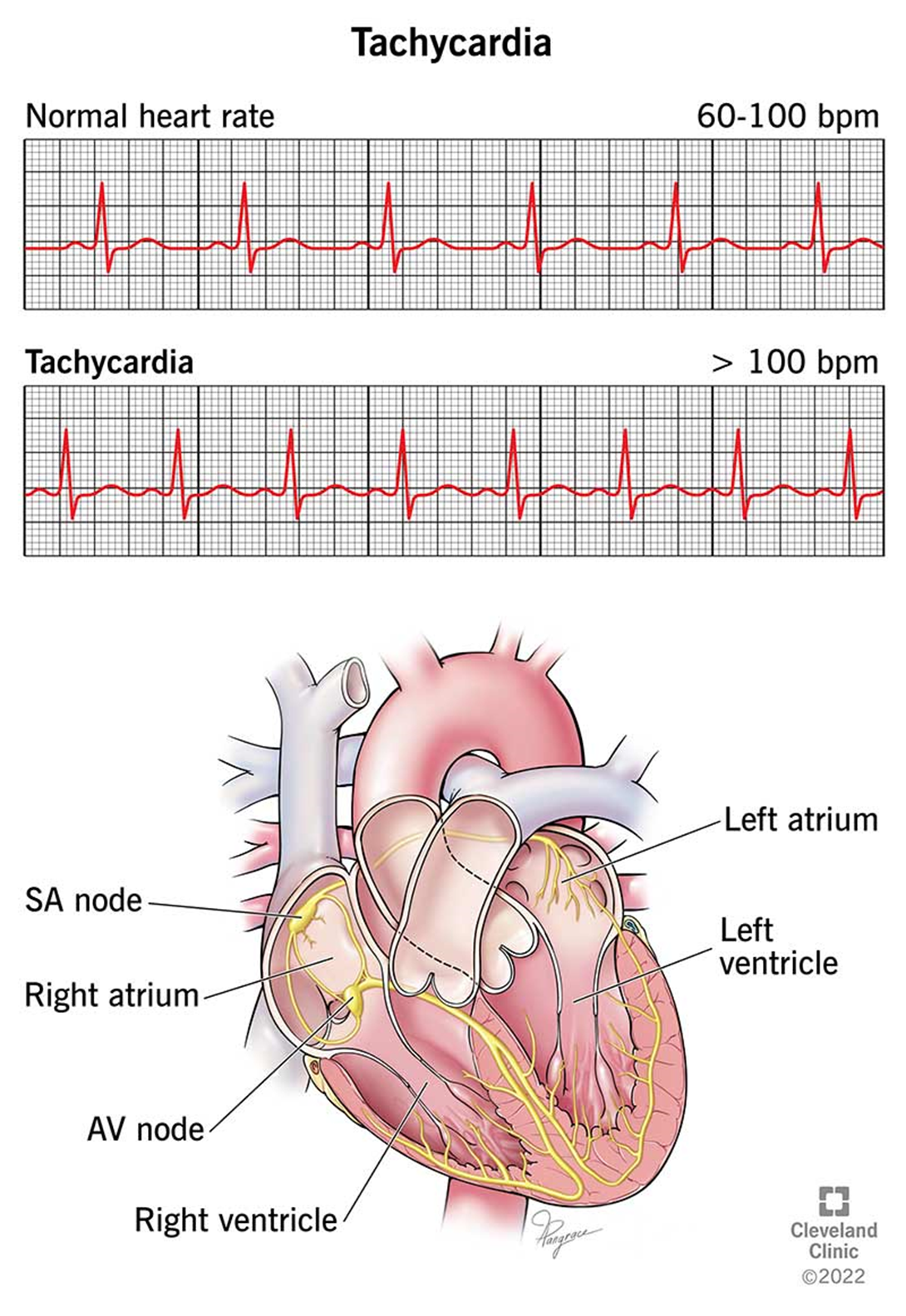A nurse is providing discharge instructions to a client who has asthma and is about to start taking theophylline (Theo-24). The nurse should tell the client that this medication might cause which of the following adverse effects?
Tachycardia
Drowsiness
Constipation
Oliguria
The Correct Answer is A
Choice A reason: Tachycardia is a possible adverse effect of theophylline, as it is a methylxanthine that stimulates the central nervous system and the cardiac muscle. The nurse should instruct the client to monitor their pulse rate and report any palpitations, chest pain, or irregular heartbeat.

Choice B reason: Drowsiness is not a likely adverse effect of theophylline, as it is a stimulant that increases alertness and energy. The nurse should caution the client to avoid taking the medication close to bedtime, as it may cause insomnia.
Choice C reason: Constipation is not a common adverse effect of theophylline, as it does not affect the gastrointestinal motility or secretion. The nurse should advise the client to maintain a balanced diet, adequate fluid intake, and regular exercise to prevent constipation.
Choice D reason: Oliguria is not a typical adverse effect of theophylline, as it does not impair the renal function or cause fluid retention. The nurse should encourage the client to drink enough fluids to prevent dehydration and maintain a normal urine output.
Nursing Test Bank
Naxlex Comprehensive Predictor Exams
Related Questions
Correct Answer is B
Explanation
Choice A reason: Dextromethorphan is a cough suppressant that does not affect blood glucose levels. It is safe to use for clients with diabetes.
Choice B reason: Prednisone is a corticosteroid that can cause glucose intolerance by increasing glucose production and decreasing insulin sensitivity. It can worsen hyperglycemia and increase the risk of diabetic complications.
Choice C reason: Atorvastatin is a statin that lowers cholesterol levels and reduces the risk of cardiovascular disease. It does not cause glucose intolerance and may have a beneficial effect on glycemic control.
Choice D reason: Cimetidine is a histamine-2 receptor antagonist that reduces stomach acid production and treats ulcers and gastroesophageal reflux disease. It does not cause glucose intolerance and has no significant interaction with diabetes medications.

Correct Answer is A
Explanation
Choice A reason: This is correct because hemoglobin A1C level reflects the average blood glucose level over the past 2 to 3 months. It is a reliable indicator of the patient's glycemic control and adherence to the antidiabetic therapy. The goal for most patients with type 2 diabetes is to keep the hemoglobin A1C level below 7%.
Choice B reason: This is incorrect because serum insulin level is not a good measure of the patient's adherence to the antidiabetic therapy, as it may vary depending on the type, dose, and timing of the insulin or oral antidiabetic agents. Serum insulin level may also be affected by other factors, such as stress, infection, or exercise.
Choice C reason: This is incorrect because fingerstick fasting blood glucose level only reflects the blood glucose level at a single point in time. It does not provide information about the patient's long-term glycemic control or adherence to the antidiabetic therapy. Fingerstick fasting blood glucose level may also be influenced by the patient's diet, activity, or medication intake before the test.
Choice D reason: This is incorrect because hemoglobin level is not related to the patient's adherence to the antidiabetic therapy, as it measures the amount of oxygen-carrying protein in the red blood cells. Hemoglobin level may be affected by conditions such as anemia, dehydration, or blood loss.
Whether you are a student looking to ace your exams or a practicing nurse seeking to enhance your expertise , our nursing education contents will empower you with the confidence and competence to make a difference in the lives of patients and become a respected leader in the healthcare field.
Visit Naxlex, invest in your future and unlock endless possibilities with our unparalleled nursing education contents today
Report Wrong Answer on the Current Question
Do you disagree with the answer? If yes, what is your expected answer? Explain.
Kindly be descriptive with the issue you are facing.
